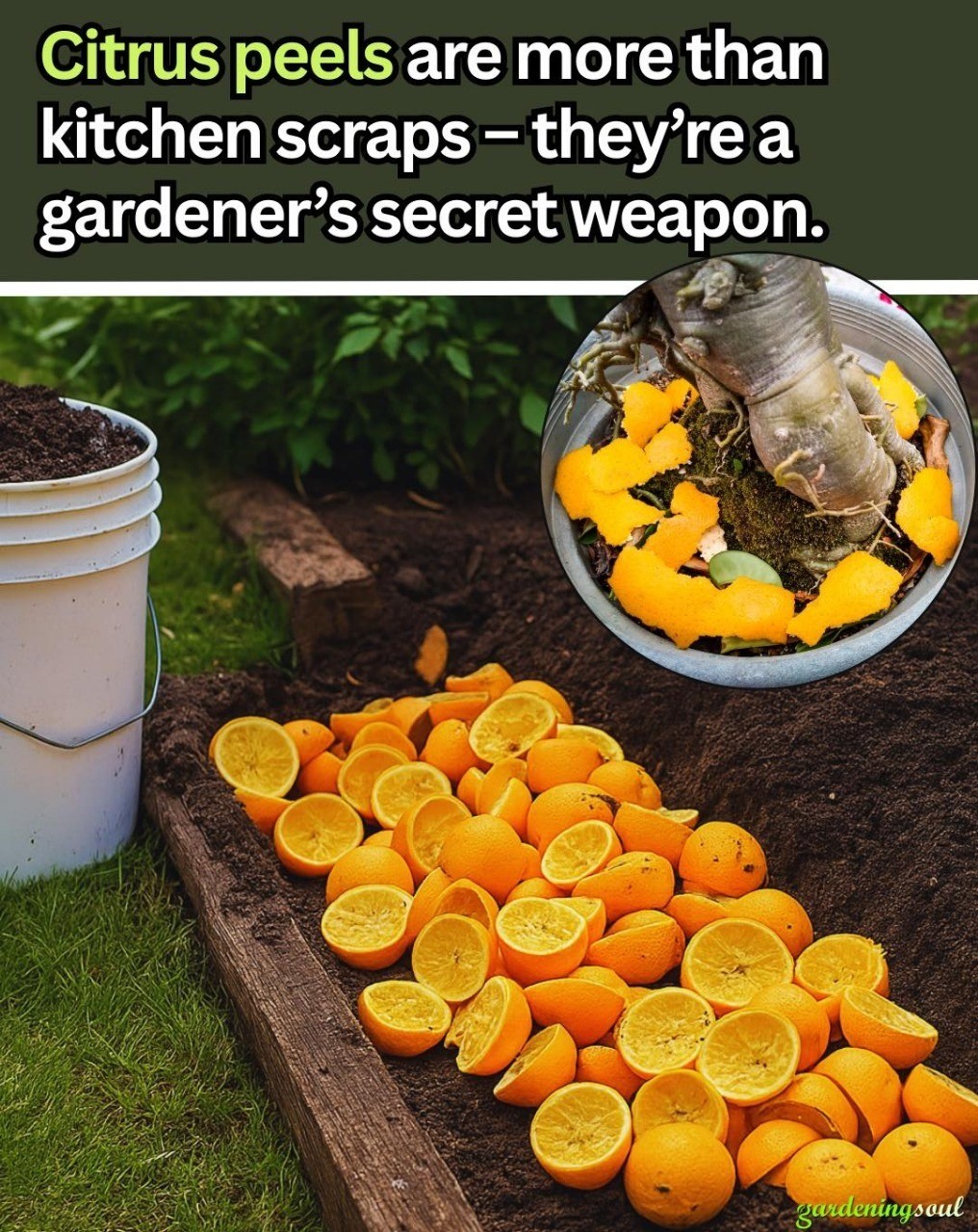12. DIY Citrus Enzyme Cleaner for Garden Tools
Citrus peels can be used to make natural enzyme cleaners that clean and sanitize your gardening tools and pots.
How to make enzyme cleaner:
- Fill a jar with citrus peels, brown sugar, and water (10:1:3 ratio).
- Let it ferment for 2–3 weeks.
- Strain and store.
Use it to clean shears, shovels, pots, and even greenhouse glass—no harsh chemicals required.
13. Attract Pollinators with Citrus Scent
While citrus peels deter some pests, they can attract pollinators when used correctly. Bees and butterflies enjoy the sweet, fermented aroma of citrus.
How to use: Create small citrus peel saucers filled with sugar water. Place them near your flowering plants to lure beneficial insects to your garden.
Bonus: It may also lure away ants and wasps from your food plants.
14. Enrich Container Plants and Raised Beds
Container plants often suffer from nutrient depletion. Citrus peel powder or chopped peels can revitalize the soil in pots or raised beds.
How to apply:
- Mix dried peel powder into the top layer of soil.
- Or add chopped peels to the base of the container before potting soil.
They will slowly release nutrients as they decompose, acting as an organic fertilizer.
15. Citrus Peel Garden Air Freshener
Your garden doesn’t just have to look good – it can smell amazing too. Scatter fresh citrus peels along walkways, patios, or under benches.
As they warm in the sun, they release a refreshing scent that masks compost or manure odors.
You can also create sachets with dried citrus peels and lavender or rosemary to hang in garden sheds or toolboxes.
How to Prepare and Store Citrus Peels for Garden Use
Drying:
- Spread peels on a tray and place in the sun or oven at low heat (about 200°F / 95°C) until fully dry.
- Store in airtight jars or containers away from moisture.
Grinding:
- Use a blender or coffee grinder to turn dried peels into powder.
- Store in labeled spice jars for easy access.
Freezing: Store fresh peels in a freezer-safe container to use later for compost, seed starters, or pest repellent.
Proper storage ensures you always have citrus peels on hand, even out of season.
Citrus Peels to Avoid
Waxed peels: Commercial citrus is often coated in wax or chemicals. Always wash thoroughly or use organic fruits when possible.
Spoiled or moldy peels: Don’t use peels with visible mold or rot—they can introduce pathogens into your garden or compost.
Overuse in worm bins: Too much citrus can harm worms due to acidity.
Citrus peels are more than kitchen scraps – they’re a gardener’s secret weapon.
From repelling pests and feeding your soil to helping seedlings grow strong and healthy, these often-discarded peels can transform your garden in surprising ways.
By reusing what nature gives us, you not only reduce waste but also enrich your soil, support pollinators, and cultivate a more sustainable and resilient garden.
Whether you’re an urban gardener with potted plants or tending a full backyard landscape, there’s a citrus peel use for every garden.

